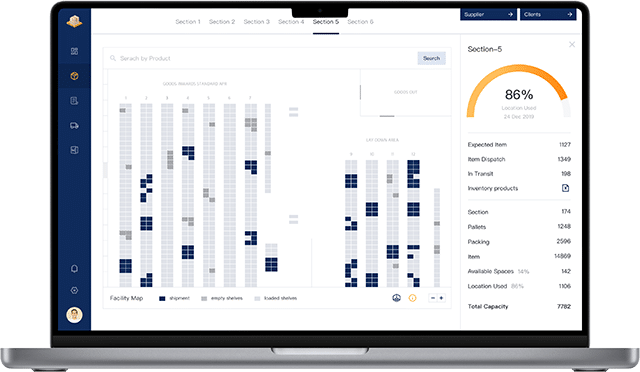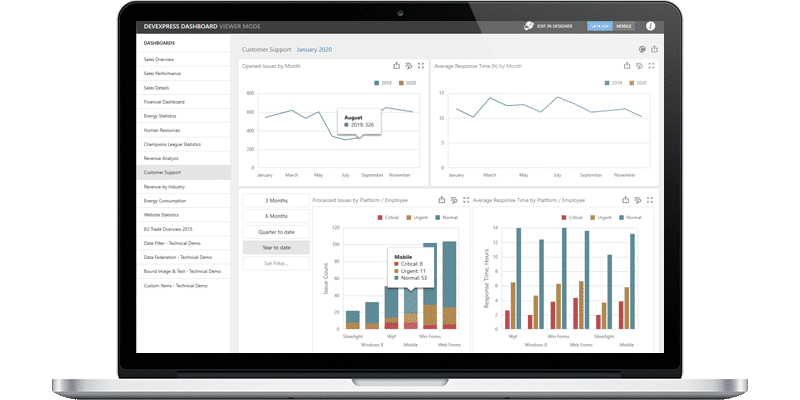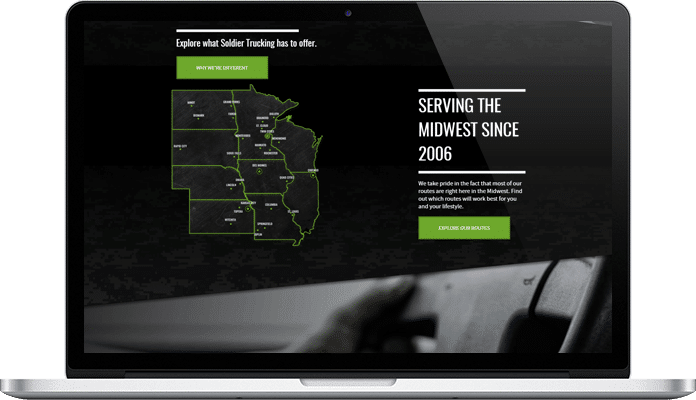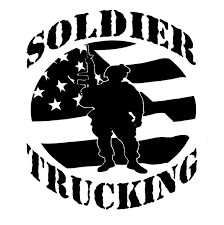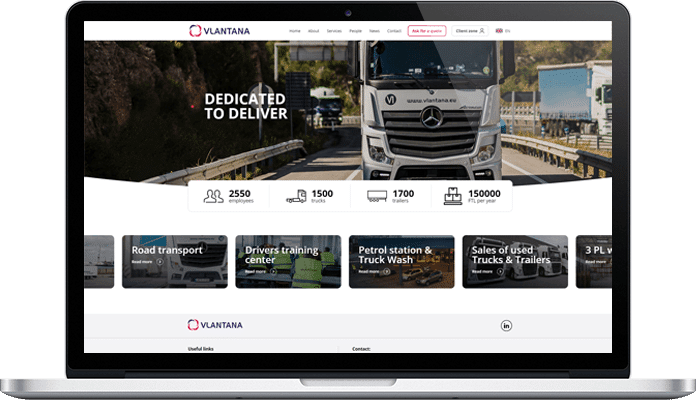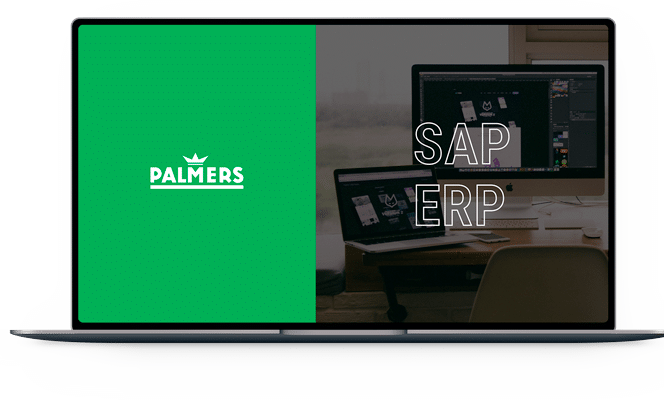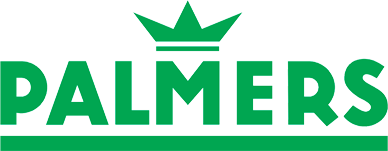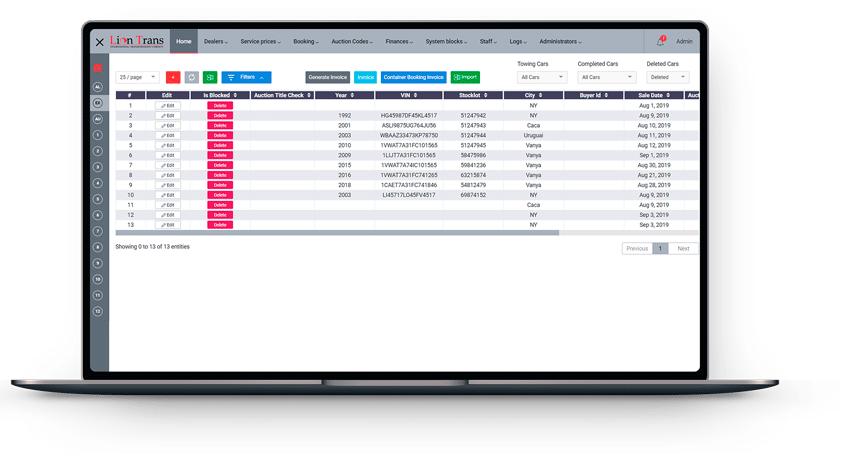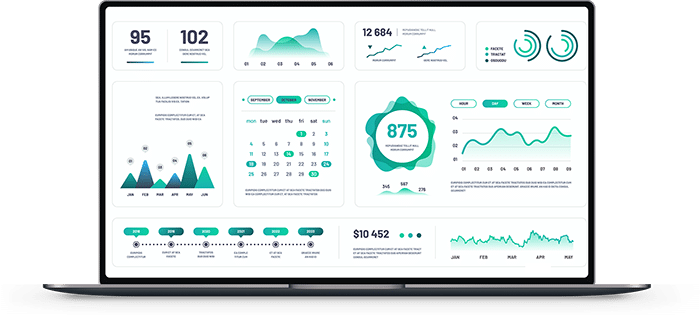What we offer
Fleet management software development
A custom fleet management solution tailored specifically to the needs, goals, values, and other underlying attributes of your business is a real game-changer in the times of templated e-commerce and supply management systems. A solution like that will ultimately boost your long-term RoI, fleet productivity, user data and BI security, scalability, and demand tendencies. With proper expertise and enough experience like we possess at DICEUS, we can build something truly unique, created from scratch individually for your brand.
Logistics data analytics and reporting
In terms of fleet management system development at DICEUS, we prioritize in-depth work with data, focusing on thorough data analytics and reporting when it comes to logistics. Well-optimized, calibrated logistics result in the ultimate long-term success of the supply chain you maintain. We will help you outline the best new routes based on the statistical and historical data (as well as other logistics data) to save more essential costs and bear less unnecessary expenses through specialized integrations.
APIs and software integration
A fitting API properly integrated with the supply chain or fleet management system enables extensive optimization, performance, productivity, and connectivity opportunities. We have the expertise to build and integrate solutions that ultimately centralize and interconnect all your supply chain features and tools, both technical and collaborative. Sky’s the limit with the custom fleet management software development approach provided by seasoned specialists with extensive portfolios highlighting outstanding creations across industries.
IoT solutions for fleet management
To add an innovative touch to how you usually handle things and expand the efficiency of your supply chain and fleet performance even further, we create IoT solutions for fleet management. Using metrics-generating beacons and sensor devices firmly connected to the real-time data processing centralized network does wonders in terms of managing widespread fleet points. On top of that, the Internet of Things presents one of the trendiest toolsets, which will also make a great push for your marketing efforts and brand recognition.
Get a free consultation on your project!
Benefits of our warehouse management software services
Our WMS development process
Get a free consultation on your project!
What impacts your project duration
There is no standard timeframe when it comes to the custom development of a WMS system: each project is unique. Nonetheless, some common factors have a substantial impact on the duration of your project.
- Project requirements
- Expected time-to-market
- Team composition
- Chosen platforms and technology stack
- Integration needs
What affects your project costs
The cost of every WMS development project is as individual as its duration. The following factors determine the final cost of your WMS solution:
- Project scope and complexity
- Chosen technology
- Project completion urgency
- Engagement model: Fixed Price, Time and Material, Dedicated Team
What we need from your side
In order to achieve the best possible results in terms of both project duration and cost efficiency, we always do our best to make an SDS appear as soon as possible. The following info (if available) can significantly facilitate our efforts:
- Project goals, vision, and roadmap if exist
- High-level project requirements
- Project-specific documentation if available, for example, software architecture and mockups
- Client’s availability (a couple of hours per week for requirements gathering sessions)
- Project deadlines
Our tech stack





























































Explore our case studies
Frequently asked questions
What are the most popular WMS solutions globally?
One of the burning trends in logistics these days is 3PL (third-party logistics) when inventory, warehousing, and fulfillment are outsourced to some third-party vendors. They usually use the following 3 types of WMS systems: integrated ERP, supply-chain modules, and standalone WMS. Some of the leading ready-to-use systems are NetSuite WMS, Fishbowl Inventory, Softeon, and HighJump. Even though they are represented as out-of-the-box WMS solutions, it is necessary to select the business specialization inherent in each system: wholesale, manufacturing, 3PL, e-commerce, and the like.
What are the essential features of WMS systems?
The functionalities of custom WMS systems may significantly vary according to the domains where they have to work. However, any application that claims to be a fully functional WMS solution can hardly do without the following features: Inventory tracking, pick-and-pack processing, task management, shipment scheduling, order fulfillment, data collection, accounting, reports, and notifications.
What are the benefits of warehouse management apps?
Enhanced productivity due to optimized warehouse operations is widely considered as the main advantage of WMS system implementation. Automation of inventory leads to faster and more precise movements of goods along the entire supply chain. The improved deliveries result in stronger customer loyalty along with a higher retention rate. Transport drivers benefit from better cross-docking and faster loading. And finally, your employees become happier with improved workflows and demonstrate better performance along with lower staff turnover.
